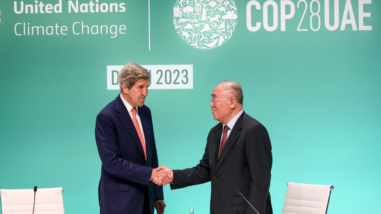Instituto de Energia e Meio Ambiente
For Strategic Planning To Improve Their Work On Sustainable And Clean Transportation
-
Amount$50,000
-
Program
-
Date Awarded11/24/2010
-
Term12 Months
-
Type of SupportProject
Strategies
Overview
We recommend a grant to address the organizational effectiveness of the Institute for Energy and Environment (IEMA). The goal of this grant is to build IEMA's communications and fundraising strategies to improve the effectiveness and reach of their work on clean vehicles and fuels and sustainable transportation systems. IEMA will consolidate its reputation with a solid communication plan and will diversify their funding revenue with a strategic fundraising strategy.
About the Grantee
Grantee Website
www.energiaeambiente.org.br
Address
Rua Ferreira de Araujo 202 10º andar. conjunto 101, Sao Paulo, 05428-000, Brazil
Grants to this Grantee
for improving air quality and mitigating climate change in large Brazilian cities
The Institute for Energy and Environment (IEMA) is the leading Brazilian organization in promoting transportation public policies. IEMA would implement a transportation strategy focusing on improving air quality and mitigating climate change by reducing emissions from vehicles in key cities. Some of the expected results from this grant are: (1) that the city of Belo Horizonte implements its municipal mobility plan, becoming the first city in implementing the National Mobility Law, and serving as a model for other cities (2) the Ministry of Cities includes performance criteria, such as emission reductions, into its technical and funding requirements to develop urban mobility plans and infrastructure projects.
for strategic planning to improve their work on sustainable and clean transportation
We recommend a grant to address the organizational effectiveness of the Institute for Energy and Environment (IEMA). The goal of this grant is to build IEMA's communications and fundraising strategies to improve the effectiveness and reach of their work on clean vehicles and fuels and sustainable transportation systems. IEMA will consolidate its reputation with a solid communication plan and will diversify their funding revenue with a strategic fundraising strategy.



